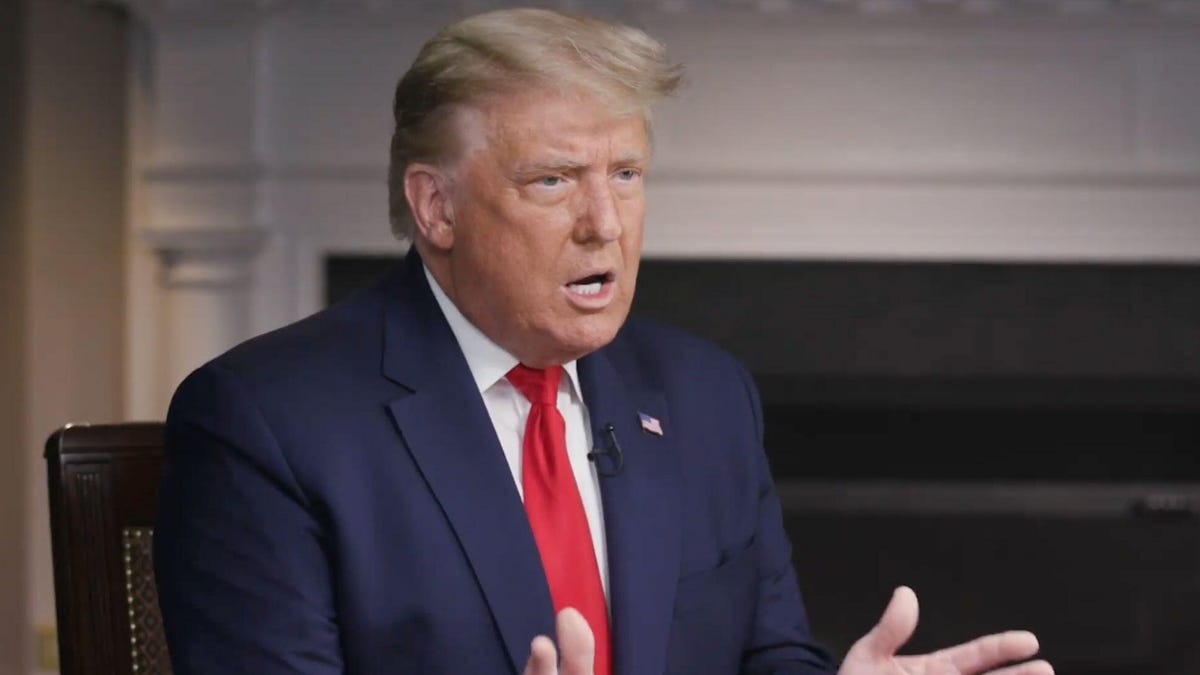Trump vetoes defense bill over Congress' refusal to repeal Section 230
The House will move to override the veto on Dec. 28, says Speaker Nancy Pelosi.

Trump has vetoed the defense spending bill because Congress didn't use the legislation to repeal the unrelated Section 230 of the Communications Decency Act.
US President Donald Trump vetoed the annual defense spending bill Wednesday, after it was passed by Congress two weeks ago. Trump had threatened to veto the bill if Congress didn't use the legislation to repeal Section 230 of the 1996 Communications Decency Act, a law that protects online platforms from liability for content posted by users.
The $740.5 billion defense bill, however, was passed by a large enough bipartisan majority in the House to override Trump's refusal to sign it. The annual defense spending authorization bill helps decide troop levels and new weapons systems, as well as other national defense issues.
Read more: What's Section 230? Everything you need to know about free speech on social media
"The Act fails even to make any meaningful changes to Section 230 of the Communications Decency Act, despite bipartisan calls for repealing that provision," Trump said in a statement. "Section 230 facilitates the spread of foreign disinformation online."
He said keeping Section 230 "will make our intelligence virtually impossible to conduct without everyone knowing what we are doing at every step."
Section 230 is considered the most important law protecting speech online. The provision essentially protects companies that host user-created content from lawsuits over posts on their services.
The law shields not only internet service providers, like AT&T , Comcast and Verizon , but also social media platforms, like Facebook and Twitter . It also provides sweeping protections that let social media platforms choose how they restrict content and what content they restrict.
House Speaker Nancy Pelosi called the veto "an act of staggering recklessness that harms our troops, endangers our security and undermines the will of the bipartisan Congress." The House will move to override the veto on Dec. 28, Pelosi said.
Sen. Lindsey Graham said he won't vote to override the veto "unless effort is made to wind down Section 230."
Trump's battle against social media companies ramped up during 2020 as Twitter and Facebook began slapping warning labels on posts by him that contained disputed information. Trump continues to use social media to falsely claim victory in the 2020 presidential election.
Read more: Trump vs. Twitter: Here's what you need to know about the free speech showdown

